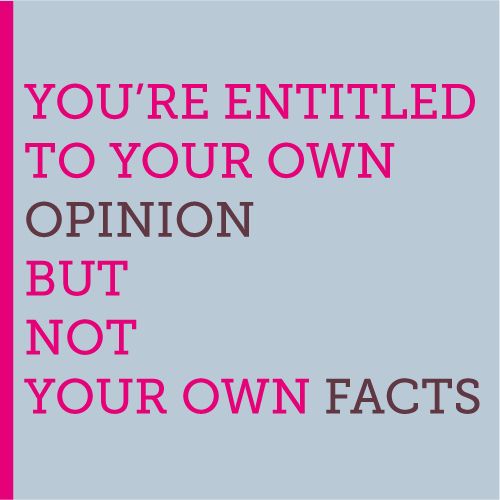
By Hannu Afere
In the sixties, Richard Hofstadter wrote a fascinating book on how the democratization of knowledge gave weight to incorrect opinions over facts. It went on to win a Pulitzer.
In the book, he contended that American Protestantism’s anti-intellectual tradition valued ‘the spirit’ over intellectual rigour and I agree to a certain degree, because we see the same thing in Nigeria.
_Said the king to the pastor: “I’ll keep them poor if you keep them stupid”_.
For a random analogy, just last Sunday, a videoclip of a building going up in flames went viral on social media. This building was right beside an MFM church. The worshippers of the church were recorded standing outside and hurling prayer points at the flames. Now, whether they had previously called firefighters or whether they truly believed their prayers could remedy the situation is one thing, but in the comment section a deeply religious fellow took it upon himself to explain why the building caught fire.
He said there was evil in the building and it was reacting to the fervent prayers of the believers.
Now, as much as we would like to lampoon such obviously flawed line of thinking, we must understand that it is not just a small percentage of people who think that way. Anti intellectualism is historically embedded in Nigeria’s national fabric, an outcome of its colonial and evangelical Protestant heritage.
It stems from religion that is prejudiced against rational thought because it promotes questioning things that don’t make sense. Ever heard of “trust and obey”, “God works in mysterious ways”, “God hath mercy upon whom he will”, etc?
The system is actually rewarding people who imerse themselves in non-rational and anti-intellectual thoughts because they are seen as trailblazers or original-thinkers not adhering to the status quo of facts backed by evidence and repeated results.
When you speak of things like climate change, the first thing the average Joe on the street would tell you is “na oyinbo problem”.
You hear of women who will not undergo a C-section even though their lives depend on it, simply because their beliefs say they’ll give birth like Hebrew women. You hear of avoidable deaths in children simply because their parents kicked against blood transfusion as it is ‘sinful’. You hear of people claiming to have received uncommon favour where other hardworking people have tried and failed– to this, the average Joe quotes a Bible passage or two and tells you “when it’s your time, it’s your time.”
Socially, intellectuals are seen as unexciting and socially inept, which is part of the image that has been repeatedly broadcast in media and social culture in Nigeria. The government has failed, society has failed so we look to religion for salvation. Skepticism has been replaced with outright denial and the inability to change opinions based on newly available facts.
It’s like the recantation of Galileo all over again. A low point for knowledge. Except today’s “deniers” make it look like it’s normal.
But all these could change if intellectualism wasn’t so demonized and people could actually enjoy their lives above the poverty line. Big business and religion which thrive under ignorance. Ego also thrives under ignorance. To quote Isaac Asmiov, “Anti-intellectualism has been a constant thread winding its way through our political and cultural life, nurtured by the false notion that democracy means that ‘my ignorance is just as good as your knowledge.'”
And all these could change if the people realized that they put both the pastor and the king where they are in the first place. Without them, there would be no government, without them there would be no priesthood.
_Said the king to the pastor: “I’ll keep them poor if you keep them stupid”_.
And even though Hofstadter’s book is almost sixty years old, it’s shockingly relevant as to how we got here.
From it, ironically, Anti-intellectualism can– from one perspective– be viewed as the hol polloi “taking power back”. This is the polar opposite of the ” I cannot go and kill myself”, “dumb people who hate science” view on things, as there are quite a few people genuinely detest to the way in which the social, political and academic mentality is unapologetically elitist and headed for the guillotine if we don’t do some serious self-evaluation.
So they know the importance of being scientific. At least theoretically. Knowledge of science keeps us alive and healthy. Culture repels the darkness. Public education which has gone to the dogs is a strategic chess move. Said the king to the pastor: _”I’ll keep them poor if you keep them stupid”_. The active political movements against knowledge and the usage thereof are extremely dangerous, and must be treated as such.
Voting during elections is not the end of the assertion of one’s rights. Elected officials must be held accountable. Dismissive rhetorics such as “politics is a dirty game” must be done away with. All hands must be on deck for our society to progress.
And it would have been nice if I could end this article on a hopeful note. But this is Nigeria and this movie has been on replay since the year 1960. So perhaps you’ll forgive me if I’m not holding my breath.
And perhaps if I say civilization is ending,you would see that I am not exaggerating.
History is replete with examples of intellectual collapse, after all.
Hannu Afere (c) 2019




Leave a Reply